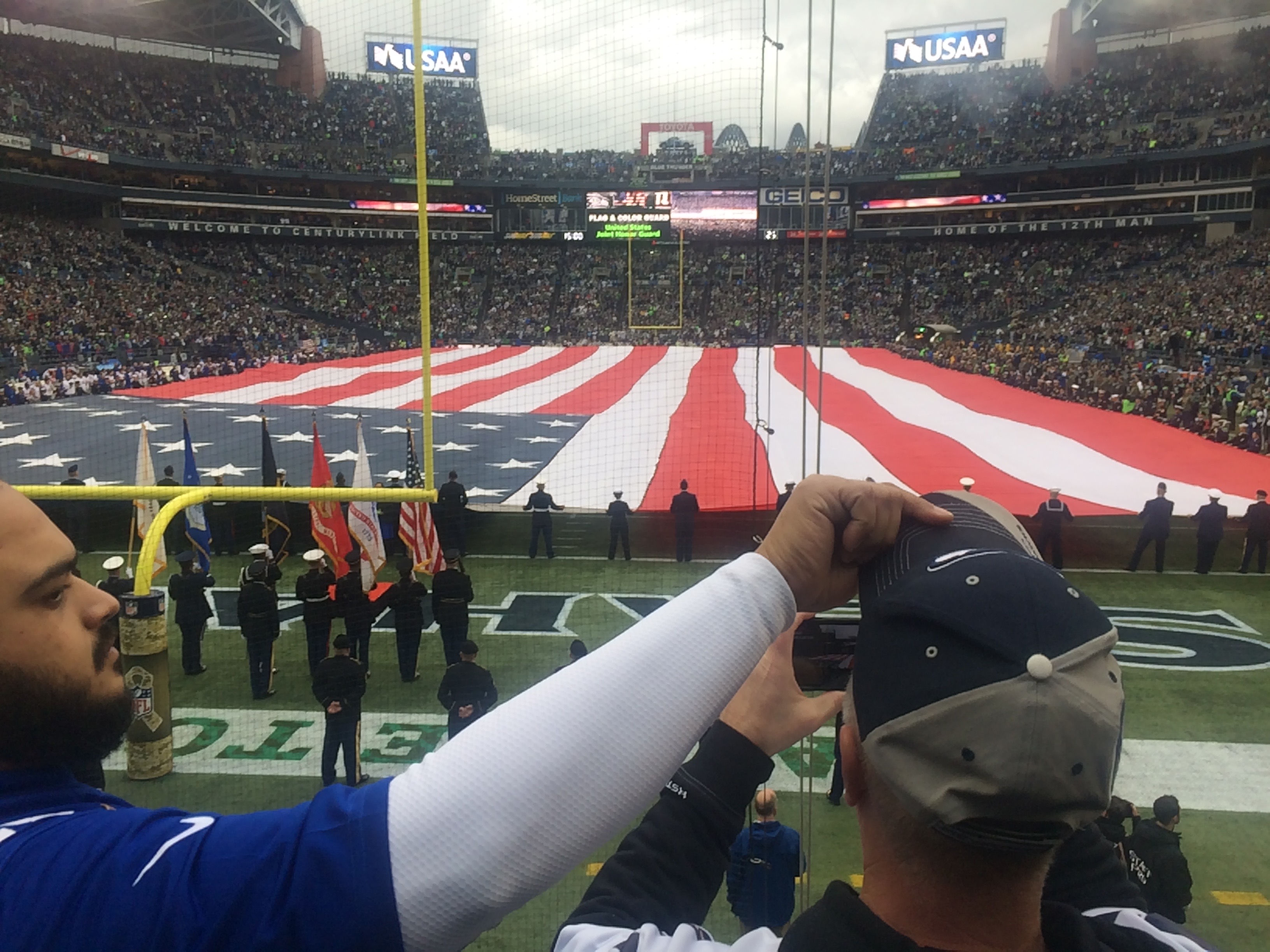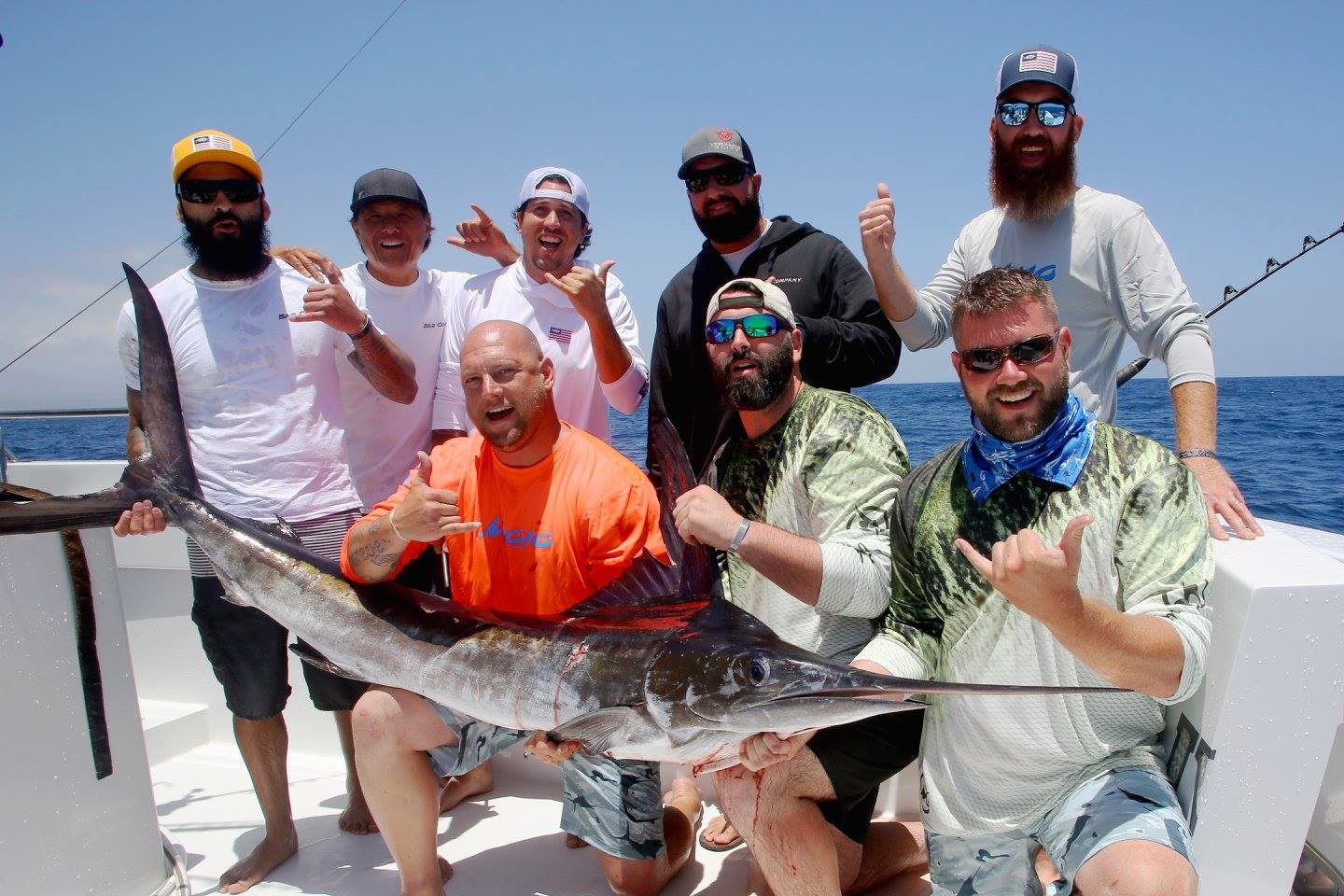Happy Birthday, America; Here’s To Our Wounded Warriors

Happy Independence Day!
Celebrate your country’s birthday safely today. In this month’s California Sportsman we profiled Mike Nares, a Southern Californian who served multiple tours of duty in Iraq and Afghanistan and suffered traumatic injuries after his unit was attacked. As you’ll see in our piece, Nares is doing OK despite suffering from PTSD, but it hasn’t been easy. He joined six other wounded warriors on a marlin fishing trip to Cabo that was sponsored by lending company loanDepot. Here’s a sneak peek at my story that will be running this month.

FOR AMERICA’S VETERANS, WHAT today is known by the acronym PTSD has likely been affecting troops since at least the Revolutionary War (terms like nostalgia, shell shock and battle fatigue have all entered the lexicon over time), if not before. But nobody really acknowledged it officially by that name until 1980, just seven years removed from U.S. withdrawal in Vietnam. It’s now become an accepted reality of the difficulties servicemen and -women are susceptible to after their time in combat ends.
Mike Nares, who grew up in suburban Vista, 40 miles north of San Diego, served in the Army from the time he graduated high school until being medically discharged in 2011. Between that time, he had 10 deployments in both Iraq and Afghanistan. A staff sergeant when he left the Army, Nares was awarded two Purple Heart and two Bronze Star medals. In 2010, he suffered traumatic brain and neck injuries when he was caught up in an ambush in Afghanistan. Nares also saw combat in Ramadi, Iraq, site of some of the fiercest fighting of the Iraq War in the mid-2000s and was once controlled by ISIS before being driven out of the city by Iraqi forces in 2016.
“I fought in Ramadi twice, in 2004 and 2006, when it was then considered the most dangerous place on Earth. I always thought that I saw more stuff than anyone else did, and for a long time that’s what I (assumed),” Nares says. “But then hearing all these other people and other veterans tell their stories, it made me realize that I’m not the only one that experienced that type of war. It’s actually really awesome to hear their stories.”
That’s one of the most difficult aspects of overcoming the effects of PTSD. When Nares was discharged, he shut down completely in terms of sharing the details of what happened on the battlefield. Save for his mother, nobody seemed worthy of a recreation of events.
He was hardly alone in his silence. The last thing returning veterans want to do is recall the atrocities they witnessed, the wounds they suffered and the memories of fighting alongside comrades they’d left behind.
“A lot of times, that first time where you’re willing to tell the story, it’s going to be amongst people who were over there in similar circumstances, who understand than it would be with a civilian or with someone who never served,” Calvin Coolidge of the Freedom Alliance says.
It took Nares two years of silence before he began to interact with other wounded vets, the only others who could possibly relate. Still, all Nares wanted to do – futilely, given the nature of his injuries – was return to the Middle East.
“Getting out was the hardest thing, knowing that I couldn’t be there with my soldiers or anyone that I served with anymore, and not being part of a family. I was living with a family and now I was all by myself,” he says.
“All I knew was the military; as soon as I’d gotten out of high school, I joined. When my time was up – sorry, this is bringing back memories – I missed it, a lot.”
So it was only fitting that Nares’ first step in the right direction was to open up once he began interacting with others who had similar experiences to his. Who else could understand the hell these brave men and women endured over there?
How far has Nares come? If you ask him about his tours of duty, he’ll gladly talk about some – not all – of his time in uniform.
“I don’t like to tell everything that I’ve been through, because some of it is too intense to even want to put out there into words. But now if anyone has the time to listen, I’m willing to tell my story,” he says.
“It’s my healing process now to be able to let everyone know what I’ve been through and that I’m not messed up – that this is who I am. I had PTSD and a traumatic brain injury and other things. I don’t mind telling my story to anyone who asks – civilian or someone in the military. It’s just a better way to heal for me.”



